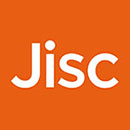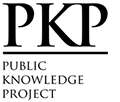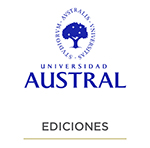About the Journal
POLICIES
Subject Matter and Scope
The Revista Jurídica Austral is an open access semi-annual publication of the Universidad Austral Law School, whose purpose is communicating original and unpublished scientific research in all branches of national and comparative law, with the aim of making significant contributions to the development of the different legal disciplines, providing valid and useful criteria for the analysis and interpretation of law to its readers.
It is mainly addressed to academics, researchers, professors, university students, members of the three branches of government (at any level), research centers, public and private organizations and legal operators in general.
Frequency and Format
The Revista Jurídica Austral is published on a semi-annual basis (January-June/July-December) in an electronic and paper format. For the electronic version, the publishing company adheres to the Open Access policy, which allows unrestricted download, distribution, copy and printing of the published material. Thus, full and free access to the information is guaranteed, without any limitation or economic, technical or legal restraint to the readers, all of which results in a significant academic contribution that is reflected in specific inputs to scientific knowledge.
The pieces of research, which need to be original and unpublished, are received on a continuous basis, without prejudice to the specific calls made at the Publishing Board’s discretion. In all cases, all the works submitted must follow the instructions and writing rules established for the authors.
The RJA is published in Spanish and works wil be accepted only in this language.
Selection of Articles
All works will be received and assessed by the Editorial Board, which will verify their relevance to the RJA’s subject matter and scope and will analyze their originality, importance, academic quality and scientific interest. The Editorial Board will accept or reject the articles received, and communicate their decision to the senders. Rejected works may be submitted to the same bodies for their reconsideration within ten days following communication to the author.
Articles and contributions from all the national and international scientific community will be accepted, and no article processing charges (APC) will be applied. Likewise, no submission fees are charged.
Plagiarism Identification
The RJA’s Editorial Board and Executive Director strictly check all the texts received for plagiarism.
The first check is made upon reception of the article: the members of the Editorial Board read the material and check other publications by the author(s) to identify any ethically inappropriate or objectionable behaviors.
Furthermore, manuscripts are also reviewed using the anti-plagiarism software Compilatio Magister+, which detects textual similarities, potentially plagiarized content after it has been translated, texts generated by artificial intelligence (ChatGPT, Gemini, YouChat) and reformulations or attempts to manipulate the text so that it cannot be seen by the naked eye.
Additional and specific checks are conducted by peer reviewers, who are provided with guidelines and practical instructions to review the article and detect possible plagiarism. Finally, during the style correction and editing phase, further checks are applied to the article.
Whenever a new version of a previously published article is submitted, the author(s) will reflect this on the first footnote and justify the new version (it includes news or retrieves a valuable article published in a language different from those used in the journal, etc.).
Should any plagiarism or self-plagiarism be identified, the articles will be rejected and returned to their author(s) by means of a clear and informed decision indicating the violation made.
Review by Peer Reviewers
In order to guarantee the scientific quality of the publications, Revista Jurídica Austral applies the “review by peer reviewers” system under the double-blind modality to all the research articles submitted by the authors for publication. In this way, the reciprocal anonymity of both authors and reviewers results in a more unbiased analysis of the articles and a more efficient quality control of contents, as well as in better institutional and professional transparency standards.
This review process will be carried out as follows:
1. All articles will be received and assessed by the Editorial Board, which will verify their relevance to the RJA’s subject matter and scope and will analyze their originality, importance, academic quality and scientific interest. The Editorial Board will accept or reject the articles received, and communicate their decision to the senders. Rejected works may be submitted to the same bodies for their reconsideration within 10 days following communication to the author.
2. The review process will only start when the submitted articles prove to have met all the guidelines to the authors, which can be found on this portal.
3. The articles will be assessed under the double-blind modality. Therefore, they will be forwarded to two external reviewers previously selected by the Editorial Board, without disclosing the author’s identity. The pairs of reviewers will also ignore the identity of the authors. To preserve the authors’ anonymity, the Editorial Board will delete their names from the text and related files.
4. Once they have accepted to conduct the review, the reviewers in question will assess the articles pursuant to the publication standards and will keep their work and contents confidential. Moreover, they will submit their opinion within a period of 15 days following acceptance of their reviewer roles.
5. The external reviewers will issue a report on the articles to the Editorial Board. Said report shall include the following variants regarding the contents analyzed: a) advise publishing with no changes; b) advise publishing with improvements; c) reject publishing. The opinion will be communicated to the author, ensuring the reviewer’s anonymity.
6. For articles approved with improvements, the author will have 15 days to submit his/her new version, and will report all changes made to it or justify any decision to the contrary. Also, if applicable, the reviewer will verify all the corrections within 15 days.
7. Should there be any disagreement between the reviewers, RJA’s Editorial Board may request the appointment of a third reviewer whose opinion will allow a more informed final decision on the matter.
8. The Editorial Board will finally decide whether or not to publish the article.
9. In all cases, the article reception and acceptance date will be published.
The recensions of bibliographic works, analyses, chronicles and commentaries to be published in the corresponding sections will not be subjected to the peer review process, without prejudice to the prior strict control performed by RJA’s Editorial Board. However, based on the situation, these organizations may request an external reviewer to analyze contents, whenever such analysis is required due to their depth, extension and complexity.
Ethics and Good Editorial Practices
The Revista Jurídica Austral is compliant with the Code of Conduct and good editorial practices of the Committee on Publication Ethics (COPE) - a discussion forum for reviewed scientific publication editors (https://publication-ethics.org/resources/cope-core-practices/), whose main purpose is to promote the integrity of academic research and publications.
Section Policy
The Revista Jurídica Austral has three sections:
a) Research articles
b) Analysis, chronicles and commentaries
c) Recensions
Waiver
The authors or submitters of the works are solely responsible for their contents. Neither the Austral University, nor their academic units are responsible for the authenticity, integrity and credibility of the published articles.
Copyright
The authors will submit their research or recensions and will specifically state that their works have nor been previously published by any paper or digital media, thus guaranteeing the right of first publication to Austral University. They will also represent that they have not granted any copyright to any other institution, natural person and/or legal entity. The user license will be executed pursuant to the following terms and conditions:
ALLOWED USES. By submitting the ARTICLE, RECENSION, ANALYSIS, CHRONICLES OR COMMENTARIES for publication in the RJA, the AUTHOR hereby waives copyright in a non-exclusive way in favor of the AUSTRAL UNIVERSITY, and grants a free license to reproduce, distribute, publish, publicly communicate, make available, transmit and/or deposit, in printing and/or by digital media, material in the Institutional Repository or other trusted sites allowing digital preservation. Through the Editorial Board, the AUSTRAL UNIVERSITY is also authorized to perform any formal and technical changes required for it to exercise the powers herein conferred, as well as to use the articles for its corresponding purpose in the section deemed suitable, and to commercially exploit the submitted works through the sale of the individual copies and/or as part of a compilation. Each of these forms of exploitation may be carried out in any known exploitation modality, including the use of printed and/or digital media.
MORAL RIGHTS No moral rights are assigned by this license, since said rights belong to the AUTHOR pursuant to copyright rules.
GOOD EDITORIAL PRACTICES. By creating a user and password to access RJA’s OJS system, the AUTHOR represents and declares under oath that he/she is the author of the ARTICLE, RECENSION, ANALYSIS, CHRONICLES OR COMMENTARIES submitted and the owner of the hereby licensed copyright; that these rights involve no obligations or levies whatsoever in favor of third parties that might be in conflict with such granting of rights or might impair the rights of the AUSTRAL UNIVERSITY; that the work is original, unpublished and created without violating any third-party rights; that the images, quotes and/or transcriptions included are duly referenced and were authorized by their owners or fall under a limitation or exception to copyright; and that they do not include any defamatory statement against third parties or in breach of applicable laws. Likewise, as inferred from the first paragraph in this document, the AUTHOR represents that the drafts delivered for publication by RJA have not been previously released by any printed or digital media, and that no copyright has been granted to any other institution, natural persona and/or legal entity. Should the AUTHOR authorize other publishing companies or scientific or academic media to publish his/her work after the first guaranteed publication, he/she hereby commits to demand that such work bears a legend indicating that the work has been previously published by RJA, specifying in writing the title, issue year, volume number, page, DOI and other identification data.
EXTRA-TERRITORIALITY AND TERM. This license is ruled by the Republic of Argentina’s laws and applies to all the national territory and all other countries for the maximum term conferred to the works by copyright laws.
This journal and its articles are published under the Creative Commons Attribution-NonCommercial-NoDerivatives 4.0 International (CC BY-NC-ND 4.0) license, which allows the user to download, share, copy and redistribute the material in any format, provided the user can reliably prove his/her condition and provides a link to the license. Said license does not authorize the use of the contents for commercial purposes and/or the remix or transformation of the material under license without the corresponding permit to distribute the material if any changes were made to it.
Digital Preservation Policies
Revista Jurídica Austral (Austral University)’s publishing company applies different digital preservation policies in order to ensure continuous and permanent access to the published contents by both readers and authors. One of these policies involves the use of owned servers by using the institutional repository of the University, whose purpose is to guarantee the accessibility, legibility and digital preservation of all its works for an unlimited period. To meet this purpose, the author hereby grants the deposit license to the repositories. Following are some of the regular tasks performed in the repositories:
* Regular backups to external servers.
* File format monitoring and conversion.
* Update of the repository supporting software.
* Regular checks of file integrity to ensure works have not suffered any changes.
* Regular monitoring of work accessibility.
* Inclusion of a persistent Handle.net URL to properly identify and localize works.
Content assurance is also achieved through the use of metadata that allow management within the preservation system, as well as resorting to independent collaborative systems (LOCKSS).
In addition, the journal is archived in Dialnet.















































